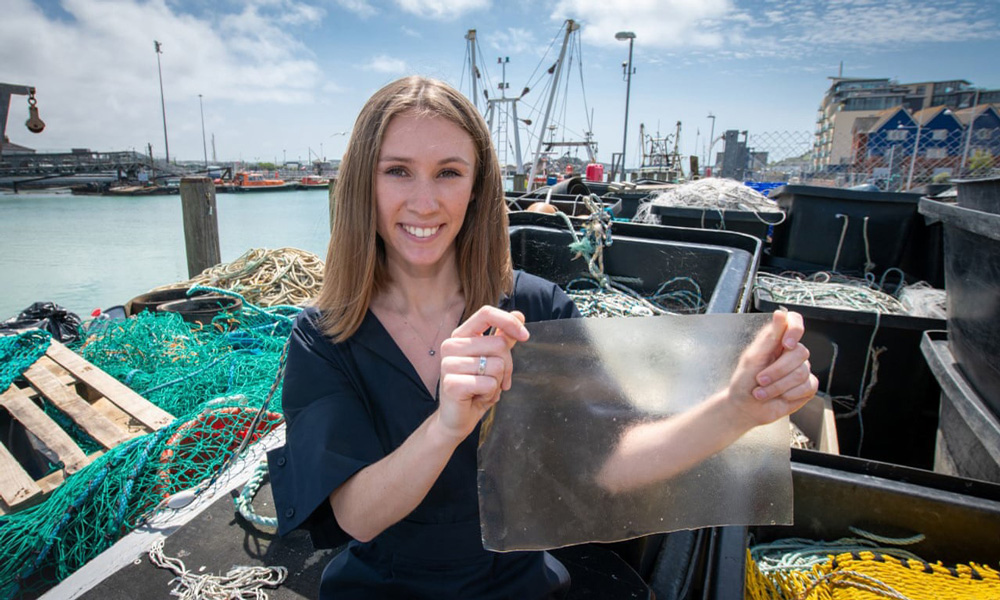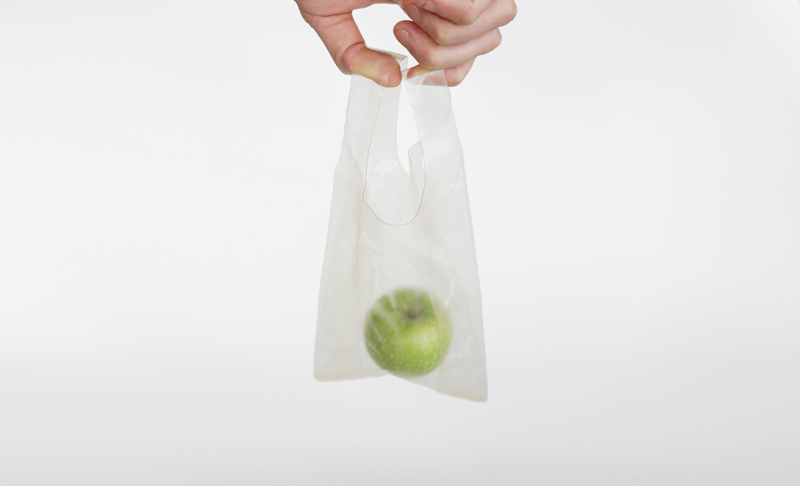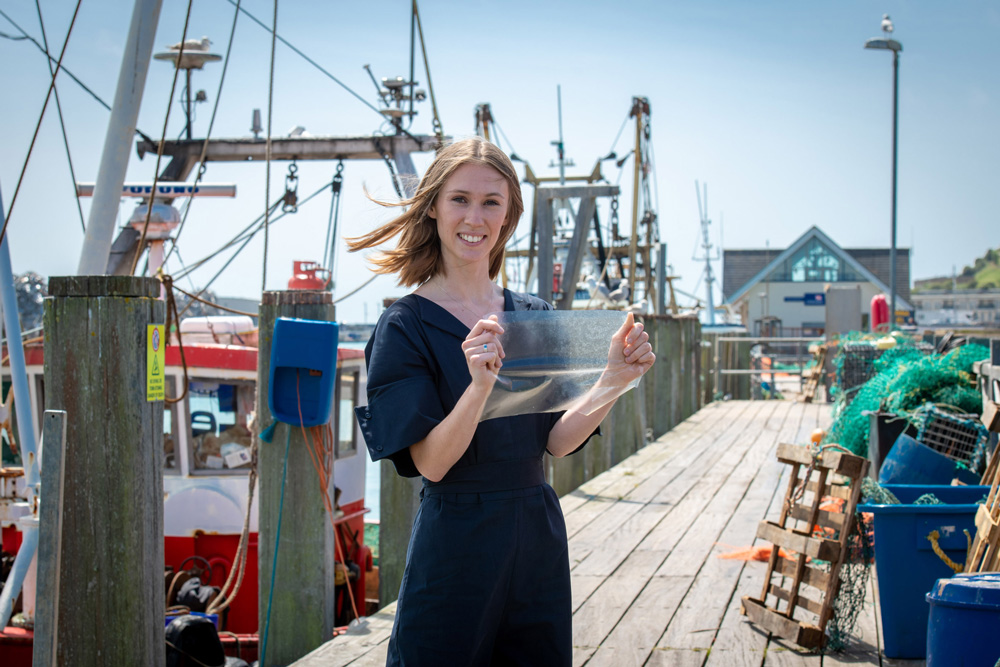Check Out the Latest New Bioplastic, MarinaTex

If you liked the story about the 18-year-old who developed a new way to extract microplastics from water, you’re going to love the story of MarinaTex.
MarinaTex was invented by Lucy Hughes, earning her the 2019 James Dyson Award, a prize that is given to recent design or engineering graduates who are able to develop a product that solves a pressing problem in an innovative way.
The material could also change our natural landscapes forever by replacing many single-use plastics that often end up littering otherwise beautiful places like beaches, oceans, forests, and just about everywhere else.
In fact, Hughes was inspired to create this biodegradable plastic after seeing the increasing amount of plastic waste during frequent trips to the seaside with her family. Later, she was even more alarmed by projections that said there will be more plastic in the sea by weight than fish by the year 2050.
You can hear her talk more about that in this video:
Hughes wanted to disrupt the cycle of use and abuse that has left our oceans clogged with plastic waste. To do that, the sea seemed like a natural place to start.
What Exactly is MarinaTex?
Essentially, it’s fish plastic, though MarinaTex is a way, way better name for it.
The thin, translucent material is made from materials that would otherwise be thrown away- something that was important to Hughes as she developed her design.
In this case, the waste stream she chose to work with came from a local fish processing plant.
By using a mixture of fish scales, fish skin, and an organic binder made from red algae, Hughes was eventually able to produce a material that behaved similarly to many traditional single-use plastics on the market but with one key difference- her invention would fully biodegrade in soil within 4 to 6 weeks.

How MarinaTex Could Change the Game
A key problem with the increasing amount of plastic waste is just how long it takes to break down.
While its durability is often necessary for certain applications, it also means that it won’t be truly “gone” for hundreds or even thousands of years. Mostly, it just breaks apart into smaller and smaller pieces and that, ladies and gentlemen, is how we get microplastics in our water stream.
Since MarinaTex is made from organic materials, it can decompose much, much faster. In your home compost bin, it would only take 4 weeks for it to break down completely- about the same as paper.
Of course, it wouldn’t necessarily break down that quickly in the random places that litter gets deposited, but it still would, and in exponentially less time than traditional plastics.
This gives it a major advantage over other bioplastics that have been developed since most of them need to be degraded in industrial composters and can’t really do it on their own.
If we could get everyone everywhere to dispose of their trash in the proper receptacles to be sent to the proper place, we wouldn’t need solutions like this in the first place.
MarinaTex works with human behaviors rather than against them- it will still break down whether it’s responsibly disposed of or not.

Congratulations, Lucy!
Inventing a new bioplastic is a big deal, and inventing one as a 24-year-old recent graduate working out of your kitchen is an even bigger deal, and not just because you may never get the fish smell out of your tea towels!
MarinaTex is a real contender for a whole new wave of sustainable plastic alternatives, since it works well, breaks down readily, and is efficient to make. A single Atlantic cod can provide enough material to make 1,400 MarinaTex bags, and the process uses very little energy since it doesn’t require heat like other plastics and bioplastics.
Lucy Hughes has done a great job in blazing her trail, inventing a real solution to a pressing problem, and figuring everything out as she did it. I, for one, can’t wait to see what she comes up with next! Hopefully, the £30,000 prize that comes with the James Dyson Award will help to fund some big things for her in the future.

Kayla Robbins
DoneGood Contributor
Freelance writer working with bighearted businesses who want to better our world.


Leave a comment